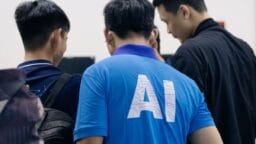The United States Government is poised to unveil a bipartisan initiative aimed at elucidating the tumultuous discourse surrounding Artificial Intelligence (AI) and its implications for the job market.
This proposed legislation, termed the AI-Related Job Impacts Clarity Act, mandates that publicly traded companies and governmental bodies submit reports to the Department of Labor detailing staffing alterations linked to AI advancements.
Artificial Intelligence and Workforce Transparency
Central to this initiative is the obligation for organizations to disclose the tally of employees laid off as a direct consequence of AI-driven automation. With such requirements, one must ponder whether this will provide the much-needed clarity.
The pervasive anxiety surrounding AI’s impact on employment persists, showing no signs of abating.
A recent report from a prominent labor union federation underscores the necessity of adopting a worker-centric approach to technological transformation.
The bill’s backers, Democratic Senator Mark Warner and Republican Senator Josh Hawley, contend that effective policy formation hinges on access to reliable data.
Warner advocates for a clearer understanding of which professions are diminishing and where new avenues for employment are arising as a result of this legislation.
Amidst these developments, predictions from technology executives diverge sharply. The CEO of OpenAI foresees the complete obsolescence of certain job categories, while the head of Nvidia argues that skilled trades, such as electricians and plumbers, will thrive amid this turbulent job landscape.
However, relying on the speculative pronouncements of billionaires to navigate career paths is fraught with uncertainty. The government’s initiative aims to provide a more substantive and less personality-driven analysis of the challenges posed by mass layoffs linked to AI integration.
Bipartisanship in the Face of AI Job Anxiety
What implications does this hold for the U.S. Government’s commitment to worker protections in the era of automation? The mixed signals from corporate leadership offer some insight.
While an Amazon Web Services executive labeled the replacement of entry-level positions with technology as misguided, the company recently undertook significant cuts, eliminating thousands of corporate jobs.
It is well-known that many AI firms, including OpenAI, are heavily dependent on Amazon’s computational infrastructure. This relationship, though laden with irony, has been solidified by a multi-billion-dollar agreement.
From the perspective of the average worker, it may appear that they are being sidelined as vast investments pour into computing resources.

Ultimately, the pivotal question remains whether the newly proposed legislation represents a genuine recommitment to safeguarding worker rights.
By mandating transparency from corporations, the government ensures that human beings are not merely an afterthought in the burgeoning AI landscape.
After all, in a future where automation reigns, who will be available to address the inevitable breakdowns?
Source link: Totalapexgaming.com.





